The Mirage name has a long and storied history in Las Vegas, going back well beyond the Strip hotel-casino that recently closed its doors.
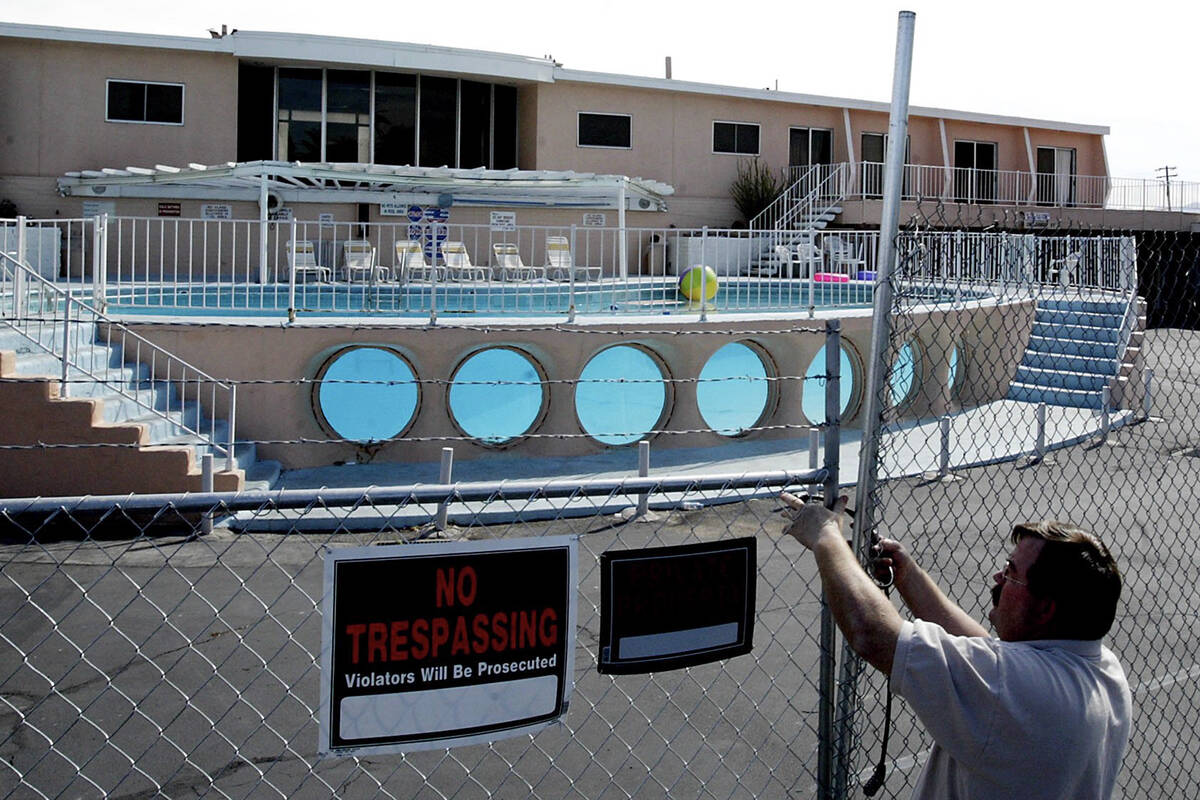
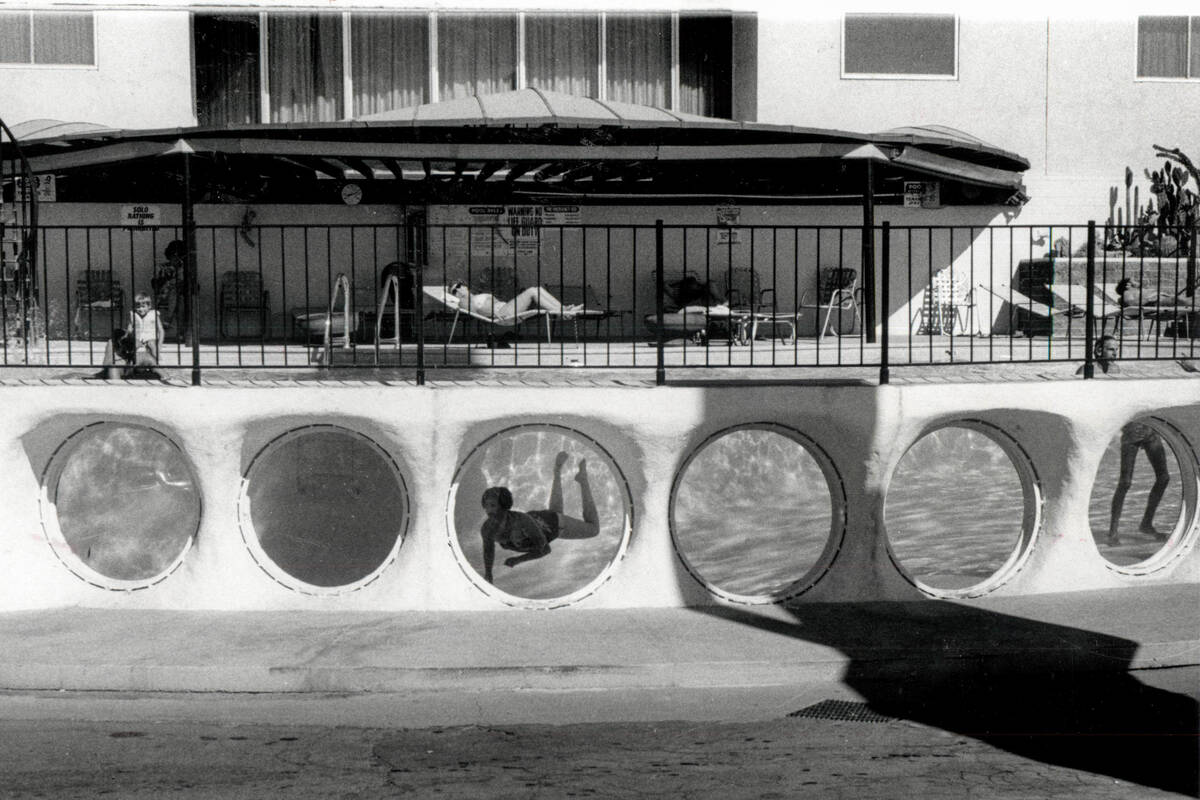
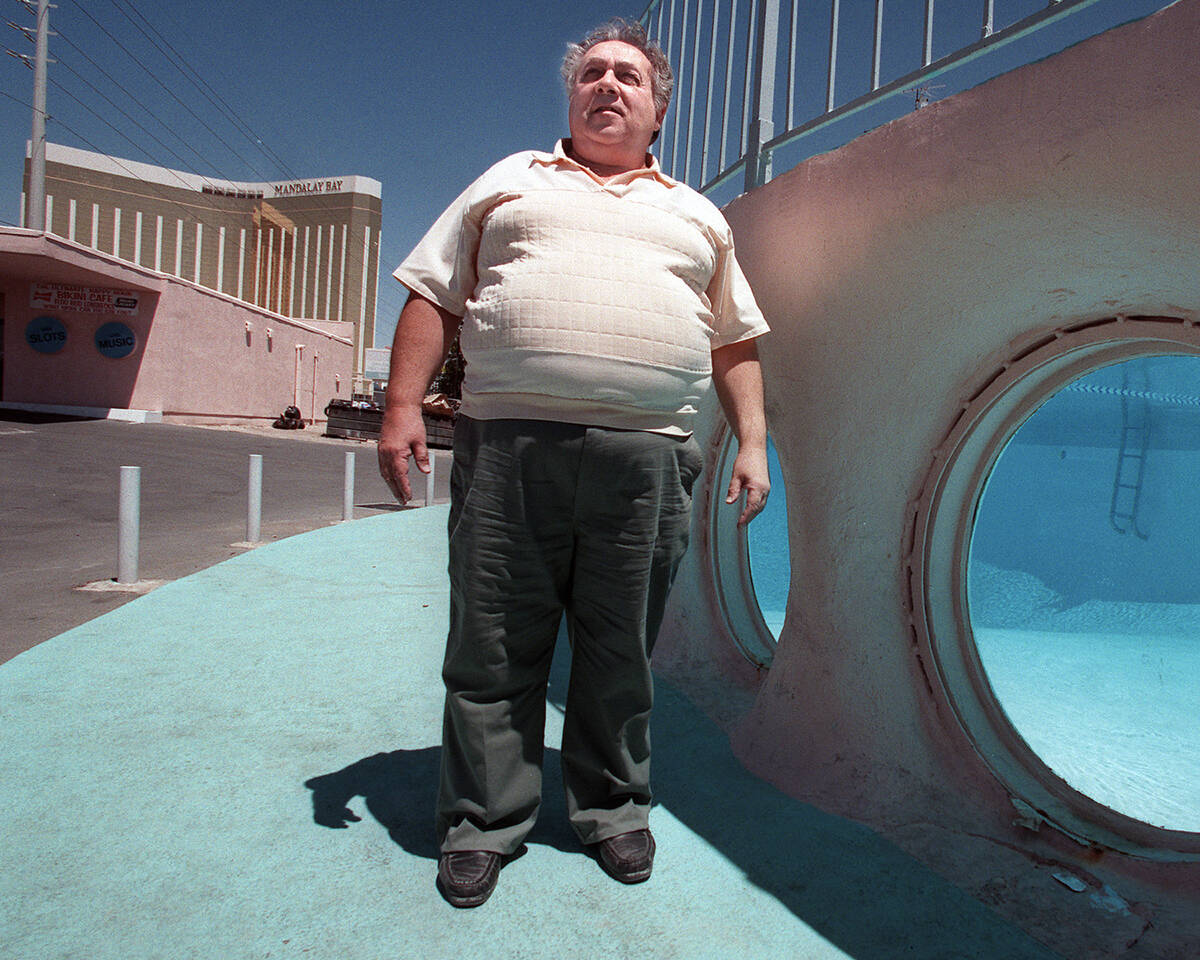
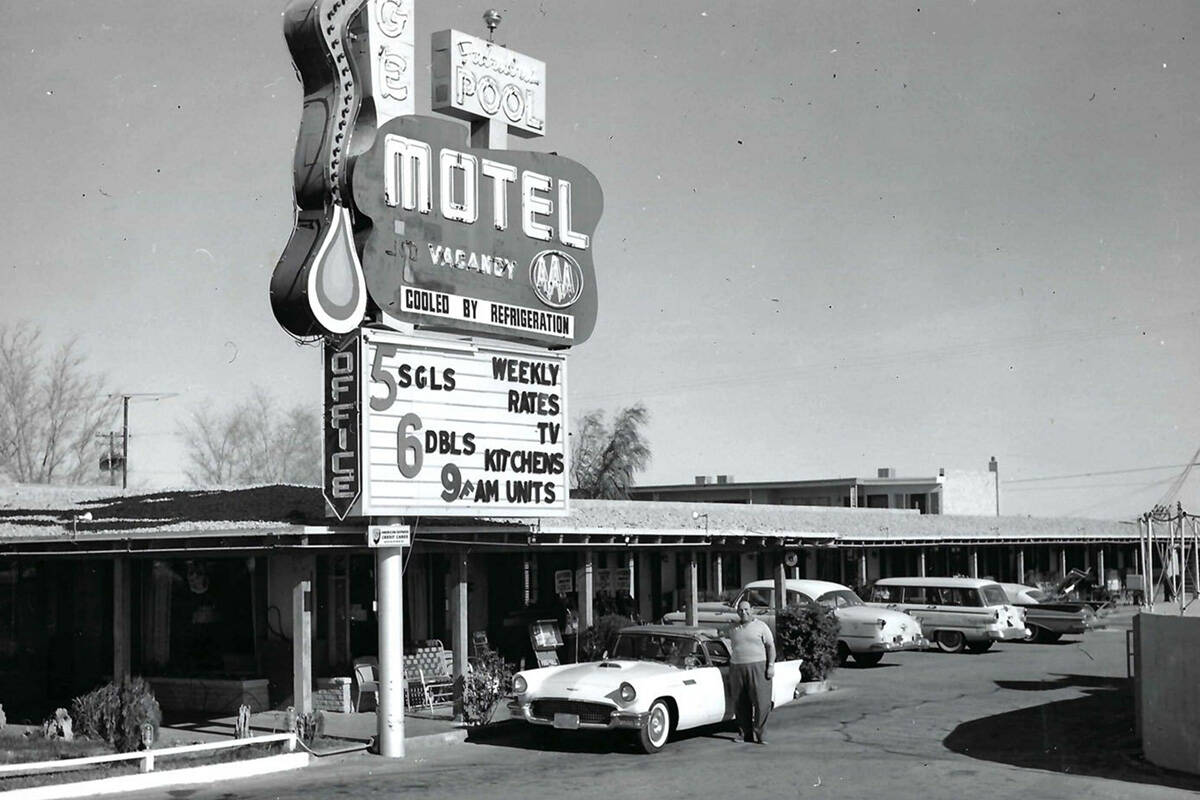
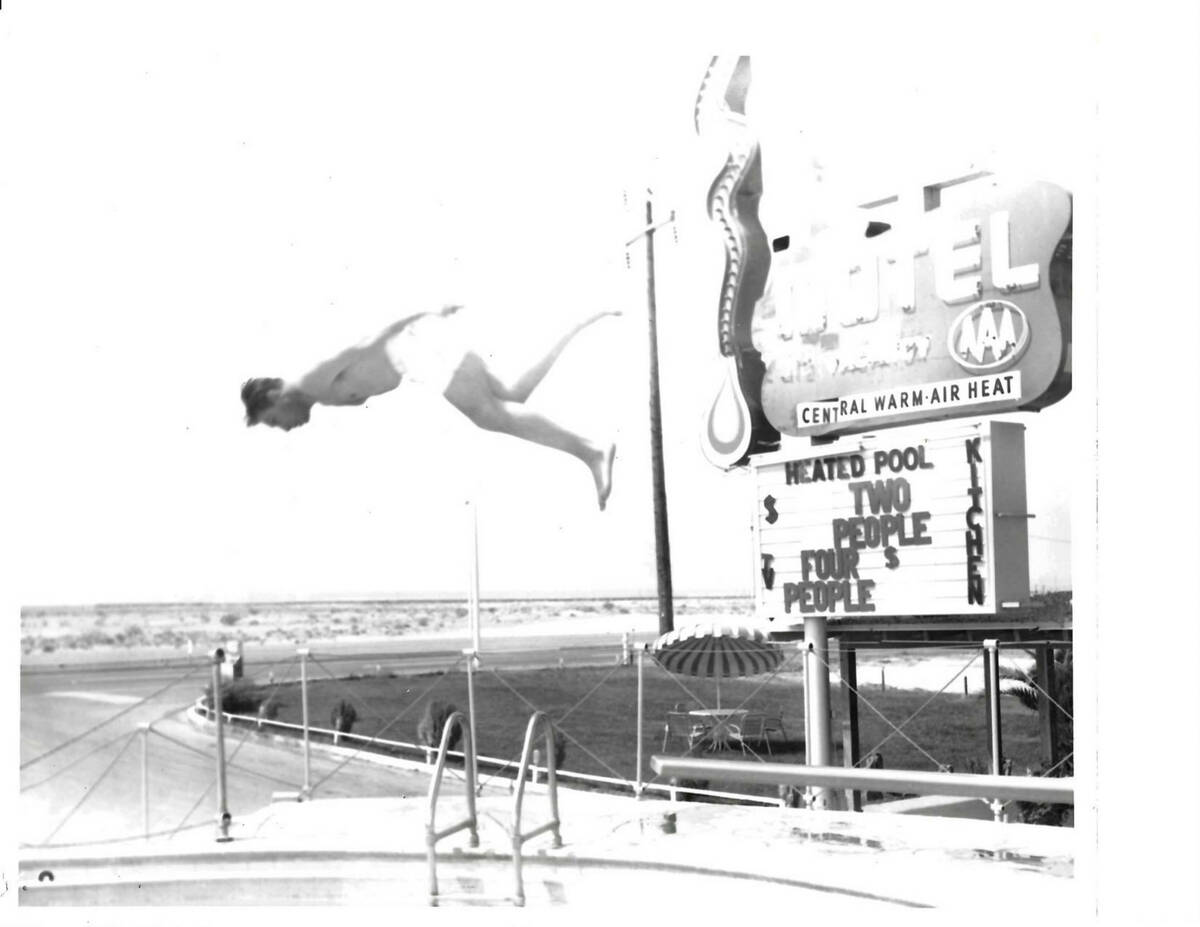
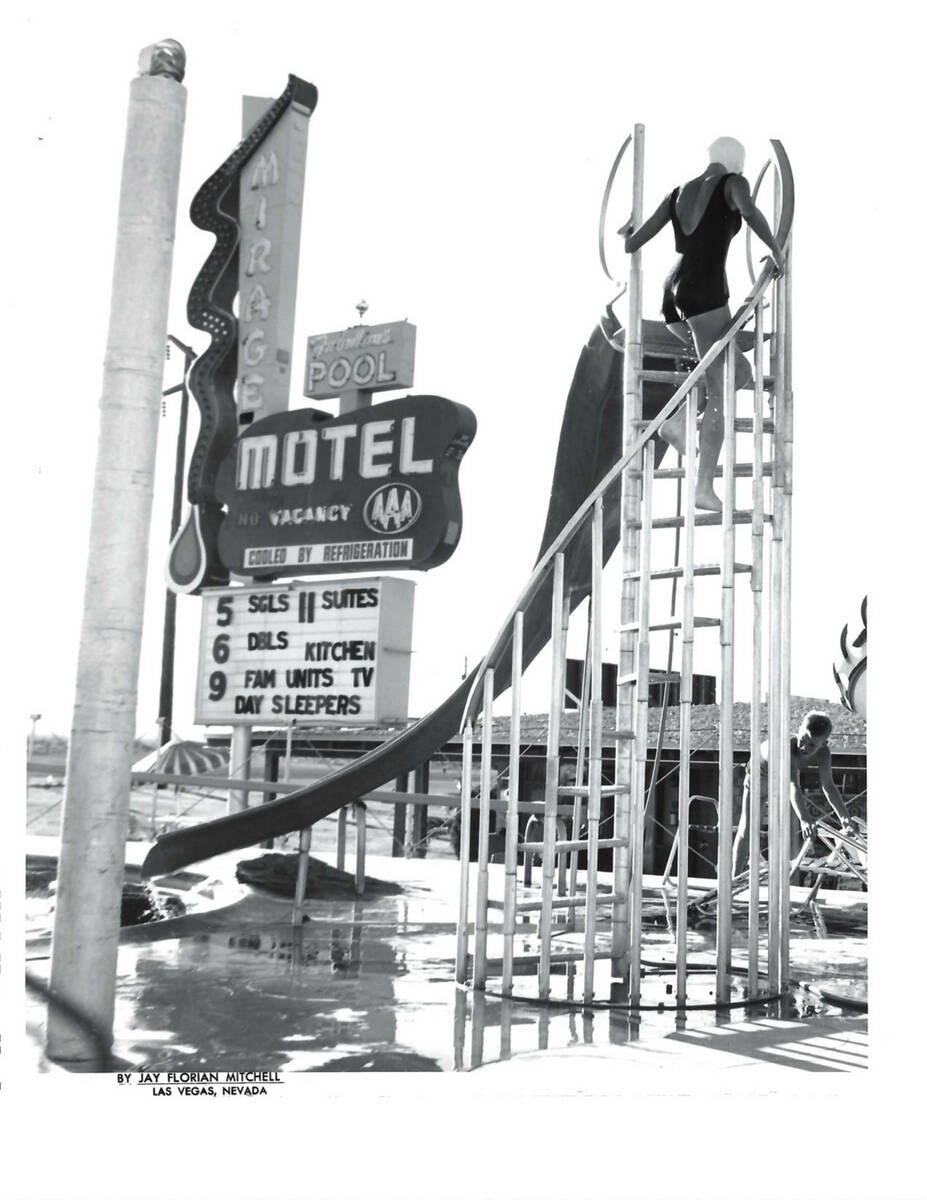
The Mirage casino-hotel will soon be a distant memory, swept away by the very same desert winds that swirled around the iconic Strip property for more than three decades. But as Las Vegas says goodbye to The Mirage — and prepares to welcome Hard Rock Hotel & Casino Las Vegas and Guitar Hotel Las Vegas in 2027 — there are those who wish to revel a little while longer about the “Oasis in the Desert” before it completely fades away.
One such person is Elayne Rosoff, whose family owned a modest roadside motel for several decades that will forever be linked to the now-shuttered megaresort.
A Las Vegas native who graduated from Las Vegas High School in 1958, Rosoff has fond memories of what the city used to be before multibillion-dollar corporations changed its identity.
“Las Vegas was really a small town, and you were likely to run into someone you knew when you went anywhere in town,” she said. In the late-1950s and early-’60s, locals would cruise Las Vegas Boulevard for fun and, as Rosoff put it, part of “the excitement was over who you would see cruising on the other side.”
Among the things people may see along The Strip in those days was the Rosoff family business, the Mirage Motel.
So how is a small desert lodge linked to a legendary Las Vegas casino? The Rosoff family received a quarter-million dollars from casino mogul Steve Wynn in the late-’80s as part of his master plan in creating The Mirage.
The Mirage Motel is not to be confused with the La Mirage Hotel & Casino, another former Las Vegas property that also plays a part in this story.
‘A lot of nostalgia’
Rosoff, an 83-year-old Los Angeles-based psychologist, said the motel played a small — but significant — role in one of the city’s most intriguing tales.
“It’s a lot of nostalgia from having grown up there,” Rosoff said.
Her parents, Betty and Robert Rosoff, bought the Mirage Motel, which was on the south side of Las Vegas Boulevard just north of what is now Russell Road, in 1953, according to news archives.
In 1955, her uncle designed and built the Mirage Motel’s famous above-ground swimming pool.
“It was pretty outstanding,” Rosoff said of the pool. “It had windows in it (and) people could see it from the highway.”
The seven port holes in the pool were, indeed, a unique addition, especially for that time period. It became part of the Mirage Motel’s appeal and attracted plenty of business.
The Mirage Motel and its pool eventually became part of popular culture, appearing in movies, television shows, music videos and photo shoots for international magazines. Among its cameos, the Mirage Motel (and its later iteration, the Glass Pool Inn) appeared on screen in “Leaving Las Vegas,” “Casino” and “Indecent Proposal,” in addition to serving as a background in shows such as “CSI: Crime Scene Investigation” and “Vega$.” Rock and Roll Hall of Famers ZZ Top shot scenes for the music video to “Viva Las Vegas” inside the pool.
But it’s the name that will live on.
In 1988, Wynn paid the owners of the Mirage Motel and the La Mirage Hotel & Casino $250,000 each for the rights to the names of their businesses.
The two existing properties had been engaged in a bitter legal dispute over the name, with the Rosoffs contending the newer La Mirage was costing the Mirage Motel business.
Wynn’s offer solved that problem and made him a fortune in the process. The $500,000 naming-rights investment allowed Wynn to create one of Las Vegas’ most-recognizable casino brands, one that began on Nov. 22, 1989, and lasted until July 17, when The Mirage closed for good.
Members of the Rosoff family owned the property on Las Vegas Boulevard and the physical structure until 1999, when the Glass Pool Inn was sold to developers. The motel was demolished in 2004.
“There’s nothing there (today), and I’m very happy about that,” Rosoff said.

